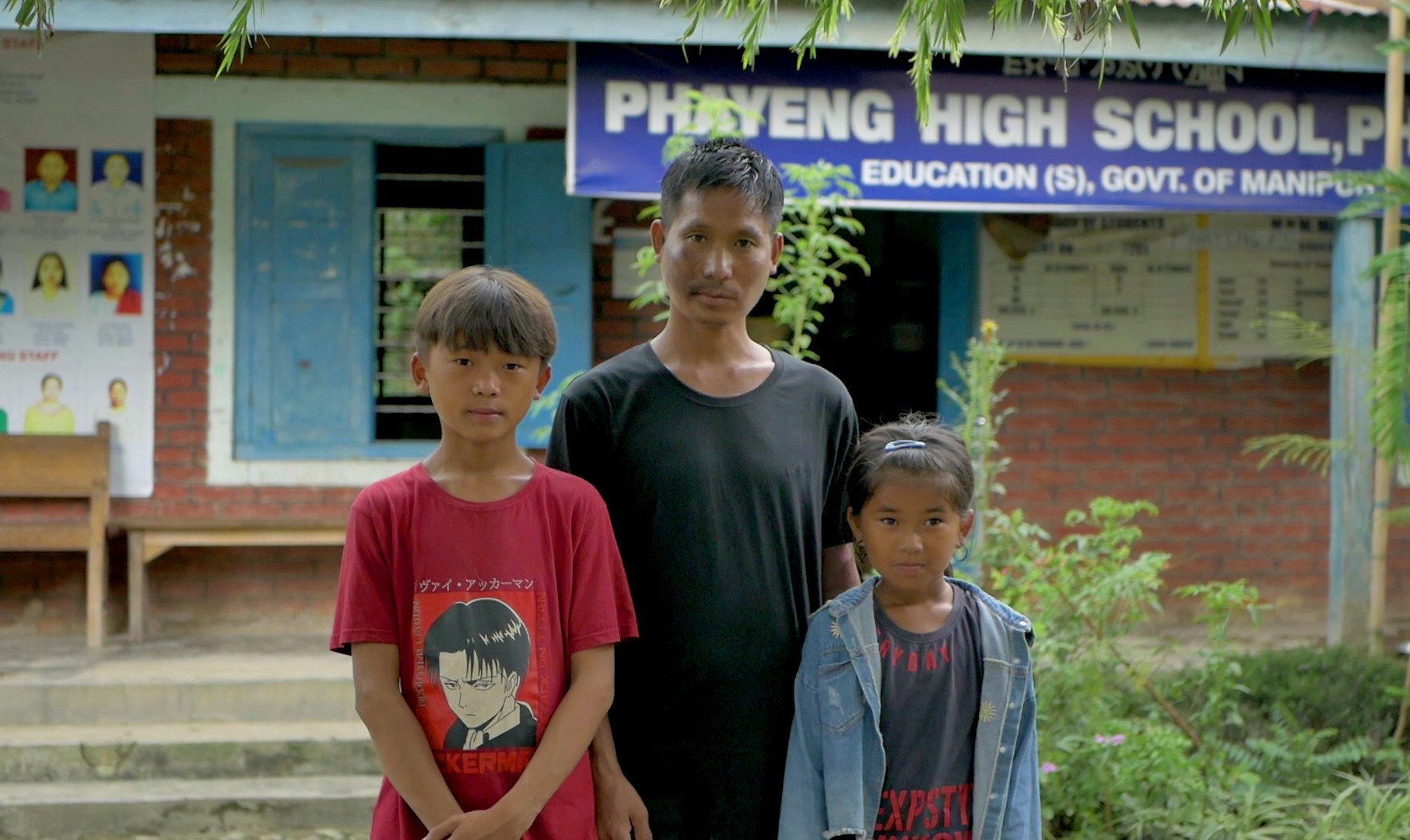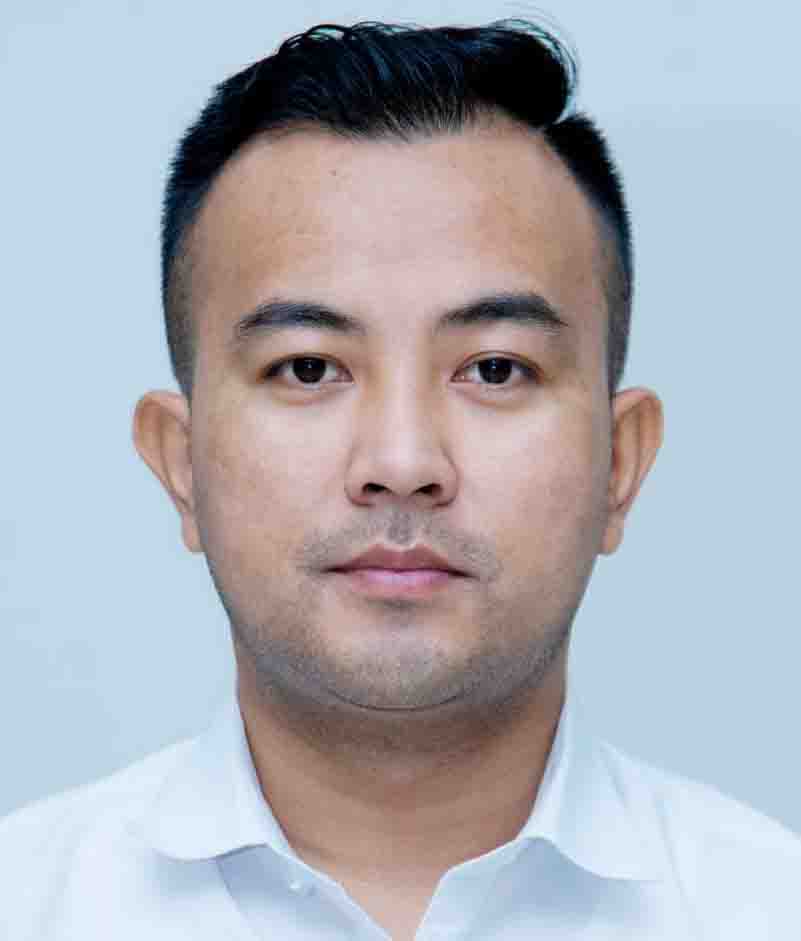Once a tranquil haven celebrated for its captivating natural vistas, Phayeng Village was a magnet for tourists, photographers, and filmmakers. This reputation was built on the community’s steadfast commitment to environmental preservation for countless generations. Located just 13 kilometres from the administrative hub of Imphal, this peaceful sanctuary is now punctuated by the jarring sounds of gunshots, explosions, and occasional ambulance sirens, casting a shadow over the last three months.
This narrative of unrest isn’t unfamiliar to the Manipuri populace or those acquainted with Manipur’s tumultuous situation. This continuing strife not only disrupts the state’s daily life but also exacts a toll on its economy and the mental, emotional, and physical health of its citizens. Yet, of all the concerns, what resonates most profoundly is the uncertain future of its youth, whose education is now jeopardized.
Accessible via the Uripok-Kangchup road, regions like Phayeng, Kangchup Chingkhong, and Kadangband are witnessing a concerning trend. Many schools, nestled amidst the foothills, now stand silent, victim to frequent incursions by suspected Kuki militants. Two notable institutions, the Smartstalk School and Little Seeds School in the Kangchup vicinity, are among those affected. However, in these trying times, Phayeng High School emerges as a glowing emblem of hope and resilience. It promises a future of education for students now adrift.
Positioned at the heart of Phayeng, the school is alarmingly close—just three kilometres—to the flashpoints where tensions between suspected Kuki militants and Meitei ‘Village Defence Volunteers’ remain unabated. Here, hallways that once resonated with the harmonious sounds of nature and the cheerful laughter of children have seen an atmospheric shift. Instead of the melodies of learning and joy, there’s now an omnipresent, unsettling hum of nearby conflict, reminding the students of the challenges beyond the classroom walls.
The recent surge of violence has cast a dark cloud over more than just the Meitei and Kuki communities. Every other community, which once shared a harmonious existence prior to May 3, now finds itself grappling with the repercussions of this unrest. One story among the many is that of Keibuibou Laingmei, a Naga resident hailing from Ireng. Like countless others, he stands as a testament to the struggles faced by parents who are fervently seeking a stable and promising future for their children amidst such chaos.
Following the arson incident that left a part of the Little Seeds school — where his children, Jackson and Kadensiliu, studied — in ruins, Keibuibou felt the pressing need to find a safer environment for his children’s education. The recurring gun battles near the school’s vicinity made his decision to enroll them in Phayeng High School all the more necessary.
As he recounted his experience, Mr. Keibuibou delved into the tribulations this conflict has forced upon families like his. “Our main source of income has always been selling bamboo shoots and timber,” he began, “and the bustling bazaar was our prime marketplace. The ongoing unrest, however, has choked our access to these markets. With the financial strain that ensued, the thought of private schooling was swiftly ruled out. That’s when Phayeng High School emerged as a beacon of hope,” he narrated, attempting to put on a brave face and a smile, even as his eyes betrayed the pain and concern wrought by the conflict.
But Keibuibou isn’t an isolated case. The corridors of Phayeng High School echo with similar stories of numerous parents who, prompted by circumstances, see this institution as a sanctuary for their children’s learning. In weeks, the school witnessed an influx of over 60 students, all of whom bore the brunt of the recent upheavals.
Angom Tomba, the dynamic Headmaster-in-charge, shared some insights: “Our total student count now stands at 180, a sizable portion of which, 60 to be precise, are recent transfers from schools that have sadly ceased operations due to the ongoing conflict. Impressively, despite the adversity, we see a daily turnout of around 140 students, particularly from Phayeng’s inner regions.”
Yet, even as the school extends its arms wide to embrace these students, it faces its own set of monumental challenges. The most glaring of these is the acute shortage of teachers. This scarcity is so pronounced that many students, fearing an inadequate education, are reconsidering their decision to attend. Mr. Tomba, wearing a mask of concern, elaborated on the dilemma: “Our teaching staff is comprised of just ten individuals, myself included. This makes orchestrating regular classes a Herculean task. Teachers’ leaves and the paucity of educators often throw our daily schedule into disarray.”
The ramifications of this deficiency are felt most acutely by the younger batches. Students from Standard I to V have to make do with a single primary teacher, trying her best to juggle all subjects. The school’s multiple pleas for additional educators have so far fallen on deaf ears. Taking matters into his own hands, the proactive Headmaster Tomba hired a private teacher, bearing her costs personally. Yet, the void is palpable, especially in specialist subjects like Social Sciences, Chemistry, and Mathematics for higher standards.
Headmaster Angom Tomba, alongside the dedicated faculty of the institution, continuously extends his unwavering efforts to offer invaluable guidance, aiming not only to impart knowledge but also to uplift the students’ spirits and aspirations in these challenging times. When inquired about his counsel to students affected by the prevailing violence—both those directly in the line of conflict and those indirectly touched by its repercussions—Headmaster Tomba highlighted the undying significance of education, even amidst chaos and uncertainty.
He passionately conveyed, “Throughout the annals of human history, conflicts have ebbed and flowed. Yet, our dedication to education should remain persistent. We, as an educational community, must stand in solidarity, channeling our collective energies to uphold and fulfill the aspirations our parents envisage for us. Regular attendance and an unwavering commitment to our academic pursuits are the cornerstones of achieving commendable results. I always remind students of these things.”
Despite the institution’s best efforts to maintain a conducive learning environment, the students, faced with the realities of the situation, grapple with anxieties about their impending future. The current shortage of educators, particularly for critical subjects, adds to the complexities. The absence of specialized faculty in Chemistry, Mathematics, and Social Science has become a palpable concern for those on the verge of significant academic milestones.
Telheiba, a diligent Class X student, voiced the collective sentiment: “The void in our faculty, especially for Chemistry, Maths, and Social Science, is profoundly affecting our academic progression. Our sincere plea is for a dedicated educator in these disciplines who can proficiently guide us, ensuring we’re amply prepared for the pivotal BOARD examinations next year.”
While the school has admirably risen to the challenge, embracing students from areas where educational institutions have been decimated or shut down, a significant challenge remains on the horizon. The current teacher shortage poses logistical concerns and stands as a potential barrier to the dreams and aspirations of both new and longstanding students, casting a shadow of uncertainty in these already challenging times.












